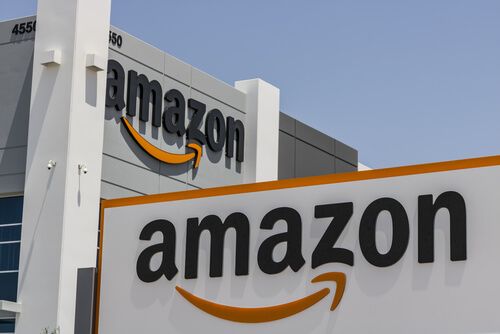
One of the biggest points holding back the widespread adoption of cryptocurrency is that users cannot readily spend it. Because of this, most of the current holders of Bitcoin are long-term investors, which both limits the utility and liquidity of the coin. Recent comments by the CEO of Binance, Changpeng Zhao, show his belief that this will change soon. He has a hunch that Amazon will soon have to either accept cryptocurrency or issue their own.
The reasoning behind this is twofold. First, cryptocurrencies have major advantages for both customers and merchants in an e-commerce transaction. Second, Amazon is known for making audacious moves and expanding into new verticals. Utilizing cryptocurrency would allow them to move further into the financial services sector. In his tweet he touted the advantages over traditional methods:
“It is easier, faster and cheaper to integration than traditional payment gateways. Less paperwork. And reaches more diverse demographic and geography.”
All of this may be true, but it ignores the perceived higher degree of risk. There is volatility in Bitcoin, and even if you look at other coins like Ethereum and Litecoin, the volatility would make it very difficult to manage inventory effectively.
Amazon as a Crypto Leader
Extrapolating into the future, it seems clear that if Amazon were to start accepting cryptocurrency, most other companies would follow. Amazon holds a dominant market share in the e-commerce space, and firms would not want there to be an even higher perceived advantage to doing business through Amazon. So naturally, they would start accepting cryptocurrency as well.
Mass adoption has always been the long-term goal for the blockchain community, yet it still awaits its breakthrough moment. As of now, there are not many retail options for spending cryptocurrency and users are usually forced to transfer the cryptocurrency into fiat currency before making a purchase.
Amazon has yet to make any open comment either way regarding the technology, but last year, several subsidiaries of the company discreetly filed for several crypto-related patents. Nothing has been done with those patents as of yet, but it does indicate an awareness of the space.
Current Acceptance of Bitcoin
Overstock notably made headlines when they made the gamble of beginning to accept Bitcoin back in 2014 by partnering with Coinbase. This was viewed as more of a marketing move than a long-term belief in the utility of Bitcoin, but the bold move paid off. At the time, Bitcoin was even more unknown, so allowing for this “nerd money” as payment for home appliances and electronics wasn’t likely to cost Overstock a lot, but got them great exposure as a relatively new company at the time.
Since then, Expedia, Newegg, and several other retailers have begun to accept Bitcoin. Amazon’s strongest argument against accepting Bitcoin is that their customers have not been asking for it enough. From a competitive perspective, Amazon has more to lose from adopting Bitcoin than a company like Overstock. It would complicate operations and add another element to their already intricate spider network of business functions and verticals.
Bitcoin adoption as a whole is a chicken and egg problem. More purchases occur the more places accept Bitcoin, and more places will accept Bitcoin the more purchases are likely to occur. In this sense, it is reasonable that Amazon is waiting until there’s a “tipping point” in popular demand for Bitcoin.
Amazon at its core is a very ambitious company that has had no shortage of risky endeavours in the past. Therefore, it is only reasonable to assume CEO Jeff Bezos would consider launching his own cryptocurrency and capturing a large part of the market. As the largest company in the world (by market capitalization), Amazon would become the first company to be considered a major issuer of currency. This currency would essentially be store credit to a website that has been called “The Everything Store”, and you can be sure the company would figure out other spins to put on any coin they issued.
Recommended Brokers and Exchanges:

